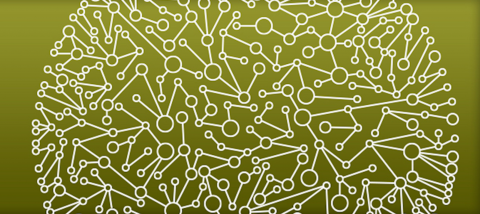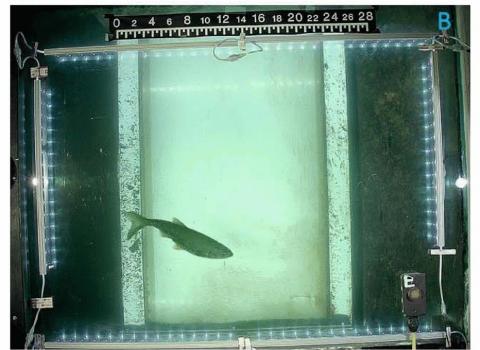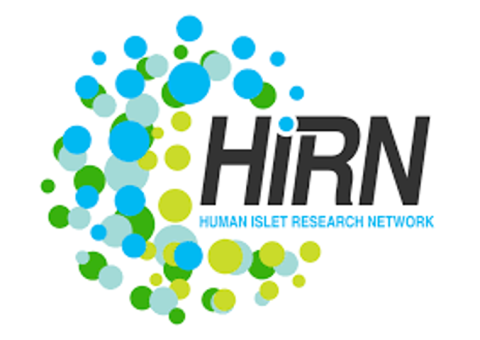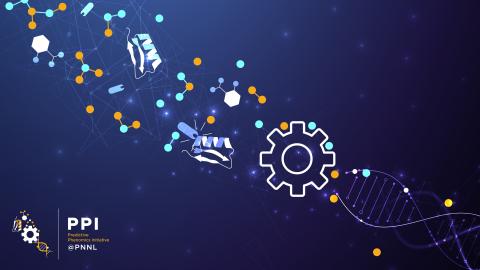Last updated on 2024-02-11T22:41:43+00:00 by LN Anderson MERS-CoV Experiment MHAE001 The purpose of this experiment was to evaluate the human host response to wild-type MERS-CoV (icMERS-CoV) virus infection. Sample data was obtained from primary human airway epithelial (HAE) cells for mRNA, miRNA...
Filter results
Category
- (-) Integrative Omics (74)
- (-) Computational Research (25)
- Scientific Discovery (379)
- Biology (263)
- Earth System Science (166)
- Human Health (112)
- Microbiome Science (50)
- National Security (32)
- Computing & Analytics (18)
- Energy Resiliency (13)
- Chemical & Biological Signatures Science (12)
- Weapons of Mass Effect (12)
- Materials Science (11)
- Chemistry (10)
- Data Analytics & Machine Learning (9)
- Computational Mathematics & Statistics (7)
- Data Analytics & Machine Learning (7)
- Renewable Energy (7)
- Atmospheric Science (6)
- Ecosystem Science (6)
- Visual Analytics (6)
- Coastal Science (4)
- Energy Storage (4)
- Plant Science (4)
- Solar Energy (4)
- Bioenergy Technologies (3)
- Energy Efficiency (3)
- Transportation (3)
- Cybersecurity (2)
- Distribution (2)
- Electric Grid Modernization (2)
- Grid Cybersecurity (2)
- Subsurface Science (2)
- Wind Energy (2)
- Advanced Lighting (1)
- Computational Mathematics & Statistics (1)
- Environmental Management (1)
- Federal Buildings (1)
- Geothermal Energy (1)
- Grid Analytics (1)
- Grid Energy Storage (1)
- High-Performance Computing (1)
- Terrestrial Aquatics (1)
- Vehicle Technologies (1)
- Waste Processing (1)
- Water Power (1)
Tags
- Virology (55)
- Immune Response (51)
- Time Sampled Measurement Datasets (50)
- Differential Expression Analysis (46)
- Gene expression profile data (45)
- Homo sapiens (34)
- Multi-Omics (31)
- Mass spectrometry data (30)
- Mus musculus (19)
- MERS-CoV (18)
- West Nile virus (13)
- Influenza A (11)
- Omics (10)
- Ebola (9)
- Mass Spectrometry (9)
- Resource Metadata (7)
- Human Interferon (6)
- Microarray (6)
- Omics-LHV Project (6)
- Proteomics (6)
- Type 1 Diabetes (6)
- Autoimmunity (5)
- Machine Learning (5)
- Biomarkers (4)
- Mass Spectrometer (4)
- Mass spectrometry-based Omics (4)
- Molecular Profiling (4)
- Software Data Analysis (4)
- Imaging (3)
- Microscopy (3)
Last updated on 2024-02-11T22:41:43+00:00 by LN Anderson MERS-CoV Experiment MFB003 The purpose of this experiment was to evaluate the human host response to wild-type MERS-CoV (icMERS-CoV) virus infection. Sample data was obtained from primary human fibroblasts and processed for mRNA, proteomics...
Category
Last updated on 2024-02-11T22:41:43+00:00 by LN Anderson MERS-CoV Experiment MFB002 The purpose of this experiment was to evaluate the human host response to wild-type MERS-CoV (icMERS-CoV) virus infection. Sample data was obtained from primary human fibroblasts for mRNA, proteomics, metabolomics...
Category
Last updated on 2024-02-11T22:41:43+00:00 by LN Anderson MERS-CoV Experiment MFB001 The purpose of this experiment was to evaluate the human host response to wild-type MERS-CoV (icMERS-CoV) virus infection. Sample data was obtained from primary human fibroblasts and processed for mRNA, miRNA...
Category
MERS-CoV Experiment MDC001 Processed Omics Data Unavailable This experiment evaluated primary human dendritic cells infected with a wild type MERS-CoV (icMERS) virus. Related Experimental Data BioProject: PRJNA315103 GEO: GSE79172 (mRNA transcriptome response) Acknowledgment of Federal Funding The...
Category
Last updated on 2024-02-11T22:41:43+00:00 by LN Anderson MERS-CoV Experiment MCL002 The purpose of this experiment was to evaluate the human host response to wild-type Middle Eastern Respiratory Syndrome coronavirus (MERS-CoV) and mutants icMERS-RFP, icMERS-DNSP16, and icMERS-d4B virus infection...
Category
Last updated on 2024-02-11T22:41:43+00:00 by LN Anderson MERS-CoV Experiment MCL001 The purpose of this experiment was to evaluate the human host response to wild-type Middle Eastern Respiratory Syndrome coronavirus (MERS-CoV), and mutants icMERS-CoV-RFP, icMERS-CoV-dNSP16, icMERS-CoV-d4B, and...
Category
Last updated on 2024-02-11T22:41:43+00:00 by LN Anderson Interferon Experiment IFNaHUH001 The purpose of this experiment was to evaluate the human host cellular response to treatment with and without interferon alpha/beta (IFNα/β) treatment. Sample time course data was obtained from human hepatoma...
Category
Last updated on 2024-02-11T22:41:43+00:00 by LN Anderson Interferon Experiment IFNMVE001 The purpose of this experiment was to evaluate the human host interferon-stimulated cellular response to interferon alpha/beta (IFNαβ) or gamma (INFγ) treatment. Sample data was obtained from primary lung...
Category
Last updated on 2024-02-11T22:41:43+00:00 by LN Anderson Interferon Experiment IFNFB001 The purpose of this experiment was to evaluate the human host cellular response to interferon alpha/beta (IFNα/β) or interferon gamma (IFNγ) treatment. Sample data was obtained from primary human lung fibroblast...
Category
Last updated on 2024-02-11T22:41:43+00:00 by LN Anderson Interferon Experiment IFNaIHH001 The purpose of this experiment was to evaluate the host interferon-stimulated cellular response to interferon alpha (IFNα) treatment. Sample data was obtained from human immortalized human hepatocyte cells (IHH...
Category
Last updated on 2024-02-11T22:41:43+00:00 by LN Anderson Interferon Experiment IFNaCL001 The purpose of this experiment was to evaluate the host interferon-stimulated cellular response to interferon alpha (IFNα) treatment. Sample data was obtained from human lung adenocarcinoma cells (Calu-3)...
Category
Category
The Human Islet Research Network (HIRN) is a large consortia with many research projects focused on understanding how beta cells are lost in type 1 diabetics (T1D) with a goal of finding how to protect against or replace the loss of functional beta cells. The consortia has multiple branches of...
Category
Datasets
1
Predictive Phenomics Initiative (PPI) Project Data Catalog Collection The Predictive Phenomics Initiative (PPI) is an internal LDRD investment at Pacific Northwest National Laboratory focused on unraveling the mysteries of molecular function in complex biological systems. Explore PPI research...
Category
Datasets
17




